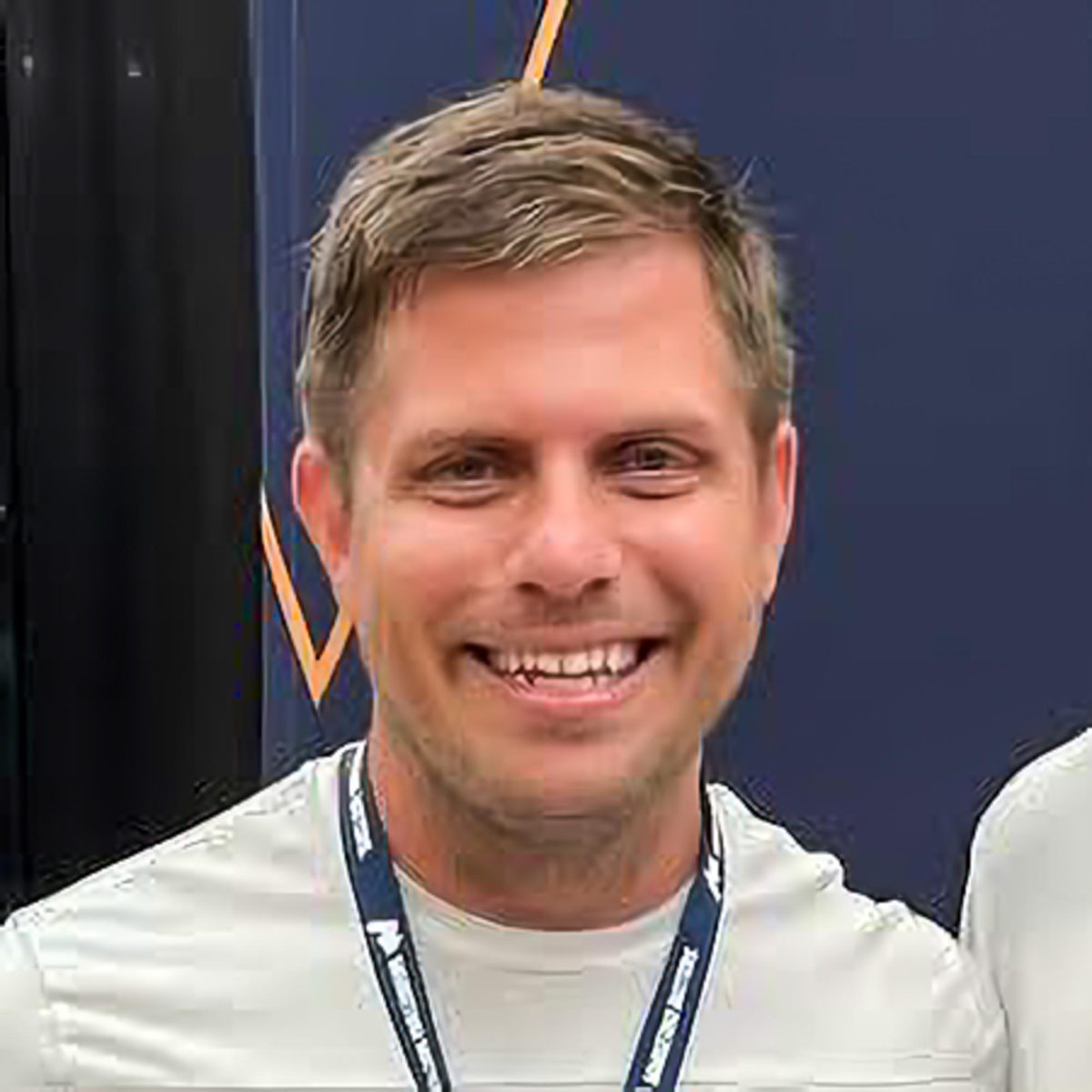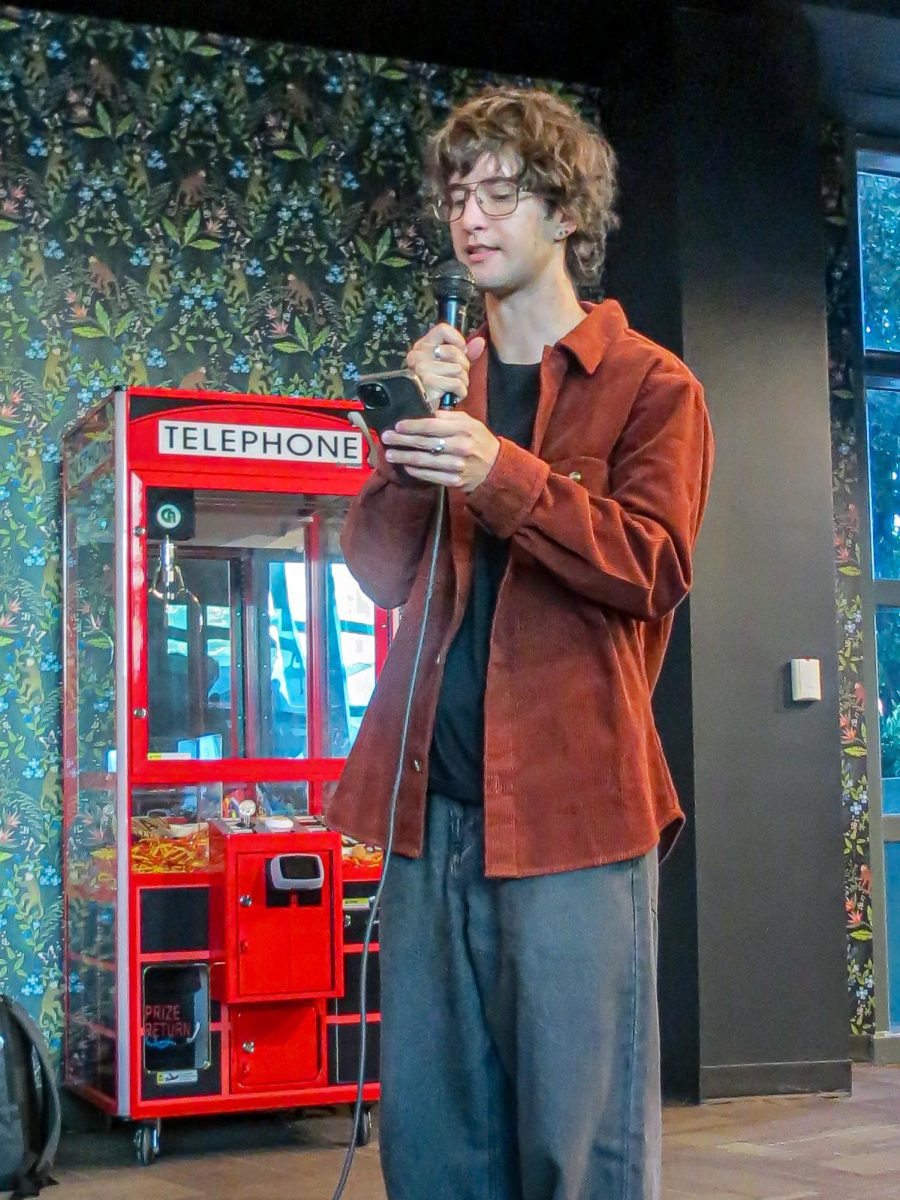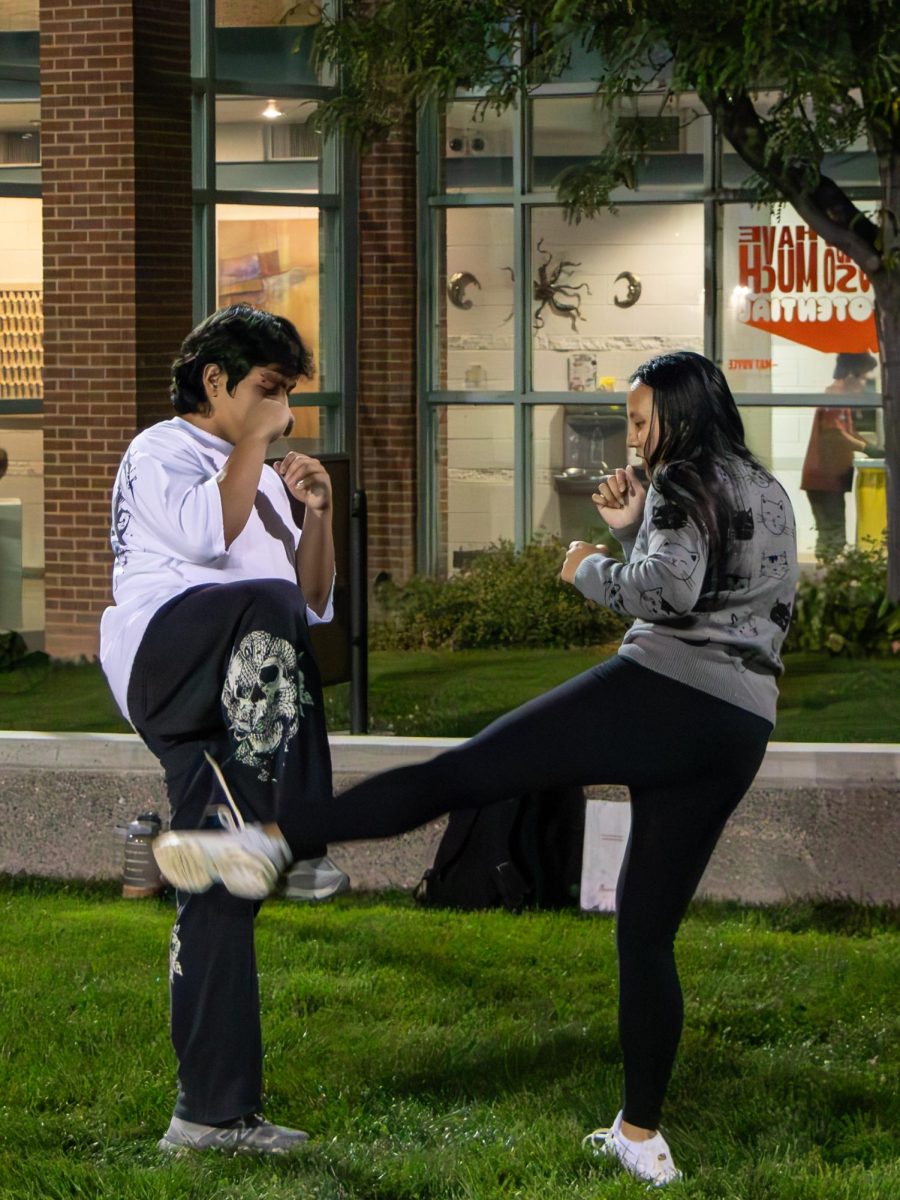One professor at Colorado Mesa University has a past as an FBI agent and another had a career as a police officer. Both are now teaching students in the criminal justice programs and using their experiences to better the students.
[media-credit name=”Courtesy of Jane Quimby” align=”alignleft” width=”300″] [/media-credit]
[/media-credit]
FBI Agent – Jane Quimby
Jane Quimby is the director of the department of public safety and supervises the peace officer academy, the wildlife fire program, the EMS program and emergency dispatch classes. She teaches classes primarily on criminal investigations. She is also a retired FBI agent with more than 20 years of experience in the field.
Since 1990, Quimby has been an agent on a wide-variety of criminal investigation cases from violent crimes, drugs and organized crime and domestic terrorism. She has been chased through the streets by a mobster named Fat Pauly and busted 20 kilos of cocaine from Mexico.
“It was awesome, a great career and a lot of fun,” Quimby said.
Quimby did not originally ever think about being in the FBI. She taught and coached basketball at a high school in Salt Lake City until a dad of one of her basketball players told her to apply at the academy. She did and, despite showing up to meet the future FBI deputy director in gym clothes, she was accepted and completed the 16-week program. She would spend most of her FBI career working in Denver and Grand Junction, where she is originally from.
“When I was first assigned, with no prior law enforcement experience, I was put on the violent crimes squad in Denver where I worked primarily bank robberies, fugitives and kidnappings. Then after about a year, I worked on a special operations team, which was primarily an undercover position.”
Quimby spent several of her first years in the bureau as an undercover agent.
“I had a fake ID, worked in an undercover office building in a strip mall, I had a car registered to the fake company and I went to work at this fake office which was essentially a bunch of agents disguised as a business. We did mostly surveillance of suspects for other cases,” Quimby said.
However, after 5 years as an agent and being involved in a large court trial she decided to pursue law school so in 1994 she started at Denver University.
“I worked at the FBI during the day and went to law school at night,” said Quimby. “I thought I was going to become a prosecutor but after four years of law school at night, which I loved and was great experience, I realized I already had the best job in the world.”
After law school and deciding to stay as an agent, Quimby shifted her focus to legal counsel and public relations, but eventually returned as a field agent where she had a new focus: domestic terrorism. She worked with the domestic terrorist squad on the biggest terrorism case in the country at the time, before 9/11. It was a cold case of an arson at the Vail Ski Resort, which was thought to be perpetrated by an environmental domestic terrorist group called the Earth Liberation Front. After working with agents from across the country in Washington and Oregon, the case was eventually solved and the criminals charged.
Eventually, in 2002, after working the Salt Lake City Olympics, Quimby took a position in the Grand Junction agency, which at that time only kept three agents. During her time in Grand Junction, she taught at the police academy and eventually took over as its supervisor.
Quimby enjoyed being able to teach students and when she retired from the FBI in 2011 she took a full-time position at CMU. Professor Quimby is a firm believer in practical learning and holds her students to a very high standard.
“I am incredibly demanding and I have extremely high expectations of my students, but they aren’t unreasonable. I carry that over from the professional standards of me in the FBI,” Quimby said. “If you get an A in my class, you had to work for it and it really means something. I have had hundreds of kids say they want to work for the FBI, but only a handful have actually understood what it takes. You have to be the very best of the best.”
Despite her tough standards, Quimby finds the most reward in teaching.
“I have put bad guys away and kept drugs off the street, but nothing comes close to the feeling of making an impact on a student’s life.
[media-credit name=”Courtesy of John Reece” align=”alignleft” width=”115″] [/media-credit]
[/media-credit]
Police Officer – John Reece
Twenty years ago, if you were having your party busted by police officers and they were handing out MIPs, chances are, it wasn’t Dr. John Reece. Dr. John Reece, a professor of criminal justice and police process, has always had a soft spot for college students, even during his 20 years in the Grand Junction PD.
“I was probably a little too lenient with the college students sometimes,” Reece said. “My approach was always, ‘hey be careful’. The nicer you are, the less resistance you are going to get. You aren’t going to save the world by charging a kid with an MIP when he’s twenty and a half or something.”
However, Reece is no softy of a man. As a patrol officer, detective and member of the rifle team. Reece is well versed in the practical application of criminal justice. Reece, or Sergeant Reece, served for five years as a K9 handler.
“Having a well-behaved dog is really helpful,” Reece recounts of a time when he apprehended a car thief, “I had him [the car thief] in handcuffs, his legs were spread and I had the pooch out. Then the dog just came tearing around and I really thought the pooch was going to bite him right in the crotch, while he was handcuffed. That would not have been a good situation, but thank god that dog behaved.”
“When I was younger my favorite position was K9 because I was on a very busy shift and I was able to engage with a lot more felony apprehension but as I got a little bit older the professional standards side grew more attractive,” Reece said.
In addition to his thorough field experience, Dr. Reece did enjoy plenty of leadership opportunities through the police force, including achieving the rank of sergeant.
“In my position as sergeant, I was the supervisor on the street, the quality control, and the first line of defense for my policing organization, especially on weekends and holidays,” Reece said. “I also had the front row seat to see the formation of the academy here in GJ. The chief at the time collaborated with President Foster to form it and they offered me the first director position at the academy.”
Reece supervised the academy for about 10 classes or cohorts but then transitioned to the main campus where he has been teaching ever since. In the classroom, Reece likes to draw on his experience to teach students practical applications of policing theory.
“I try to really draw a nexus between the real world practical and the classroom theoretical. My classes are not just purely academic theory and they are not purely applied science and practical,” Reece remarked on his teaching style.
Through being a professor, Reece is able to experience one of his favorite things, seeing his students succeed and knowing he helped them.
“When you see a kid come in as a freshman, wet behind the ears, but you know they have potential and you can have a stamp on them,” Reece said. “Being able to watch a student progress through life academically and personally and then they come back to visit when they enter their career is what I really like.”
Coming from a very hands-on, adrenaline-filled job to teaching in the classroom has to be hard and Reece admits to missing the police force sometimes.
“I miss the camaraderie of the PD a little bit. I love the people I work with now, but you just don’t get that bond and close-knitted group outside of a job in police or the military. You really have each other’s back,” Reece said. “The field experience was great, but now I can’t imagine doing anything else other than teaching.”
In the criminal justice program, Reece sees a lot of future cops, but he also says he will have a great number of students who want to become detectives. Reece enjoys helping his students reach their goals but says that only students can get themselves there but he always tells students to “follow your dreams.”
“Be confident in your abilities and your dreams, it can be accomplished. It is not going to come overnight, and it will take a lot of work, but keep at it and you will succeed,” Reece advises students going into criminal justice.
With experience behind them, these professors are able to share real-world knowledge with students like most professors.








